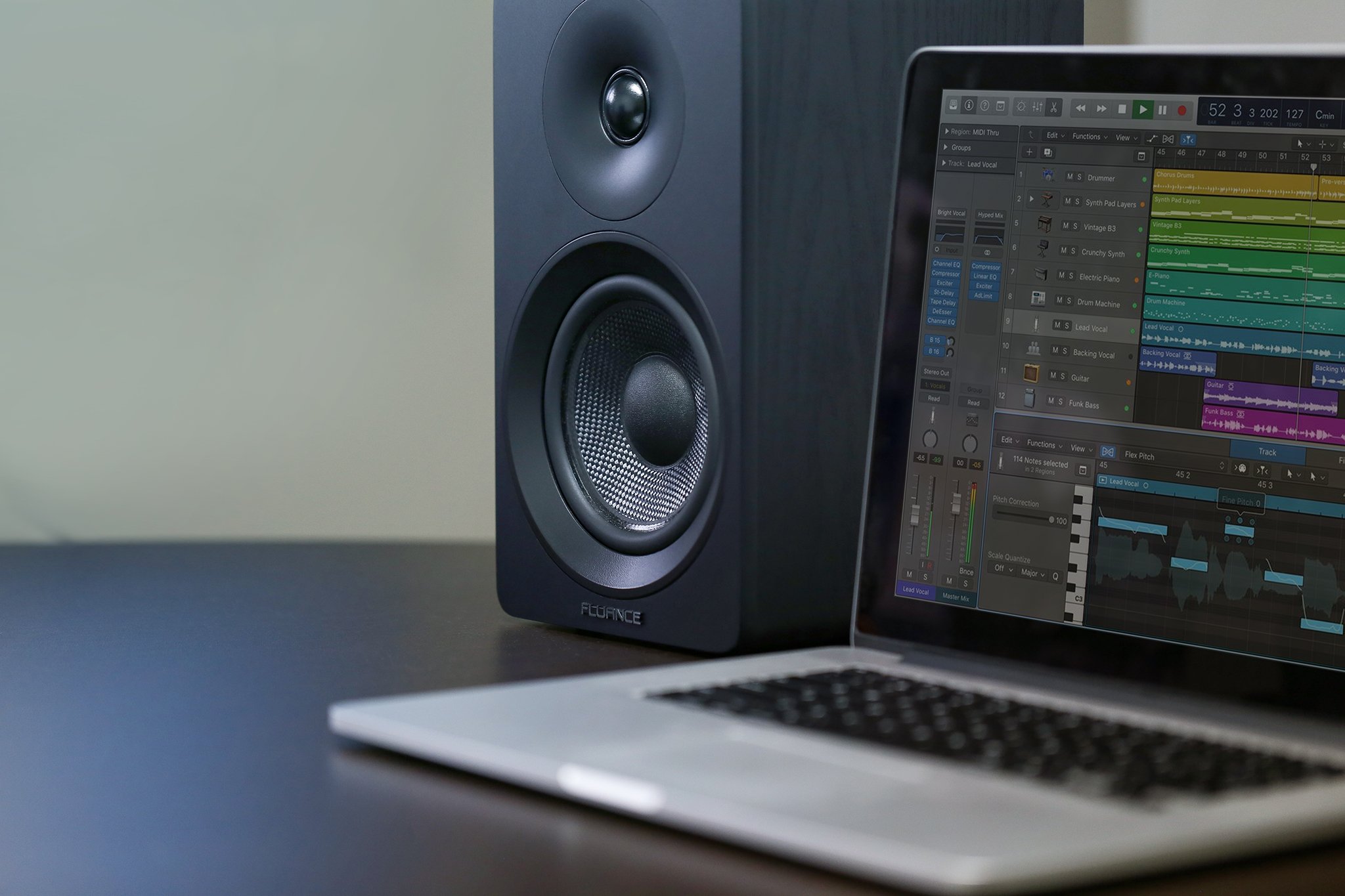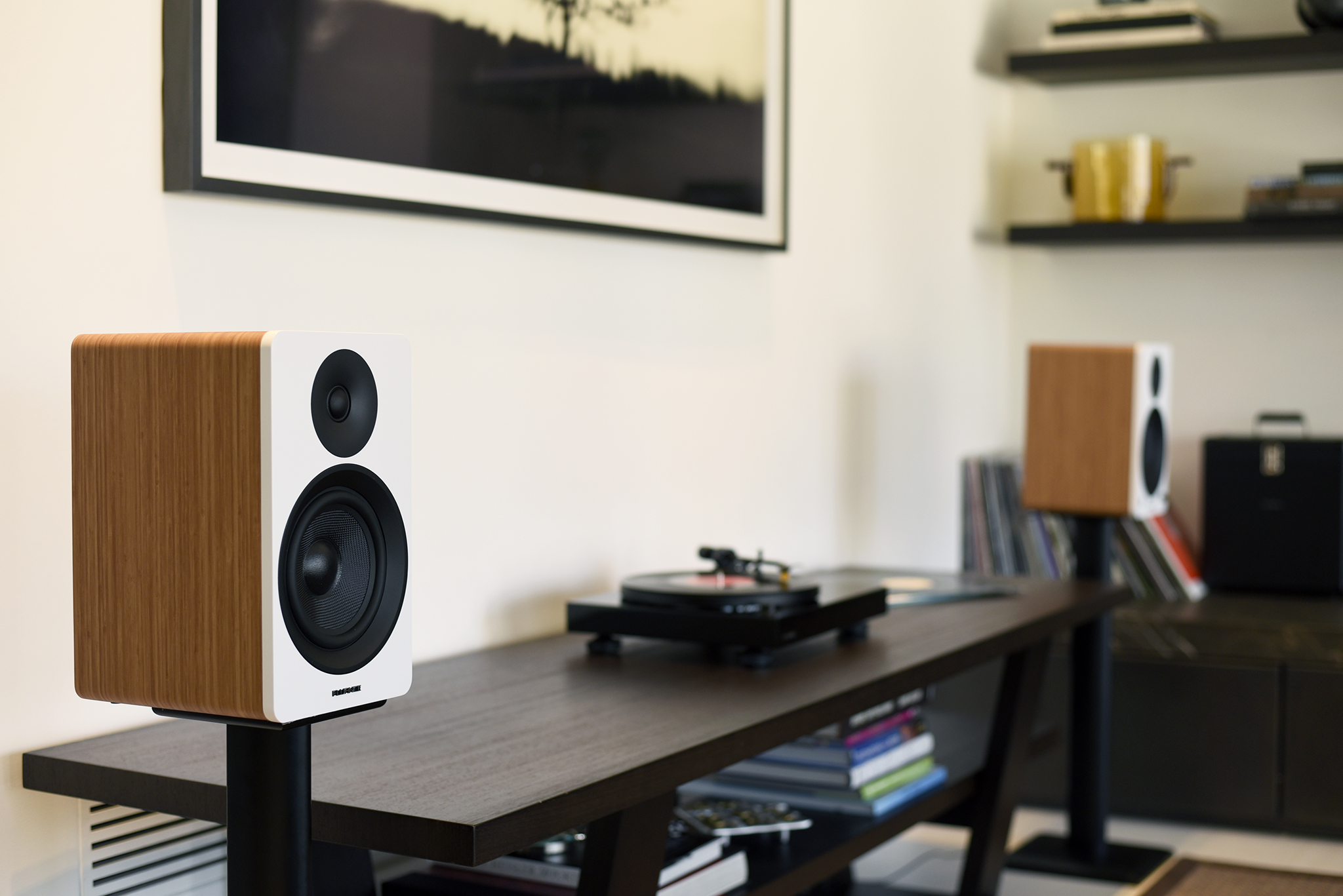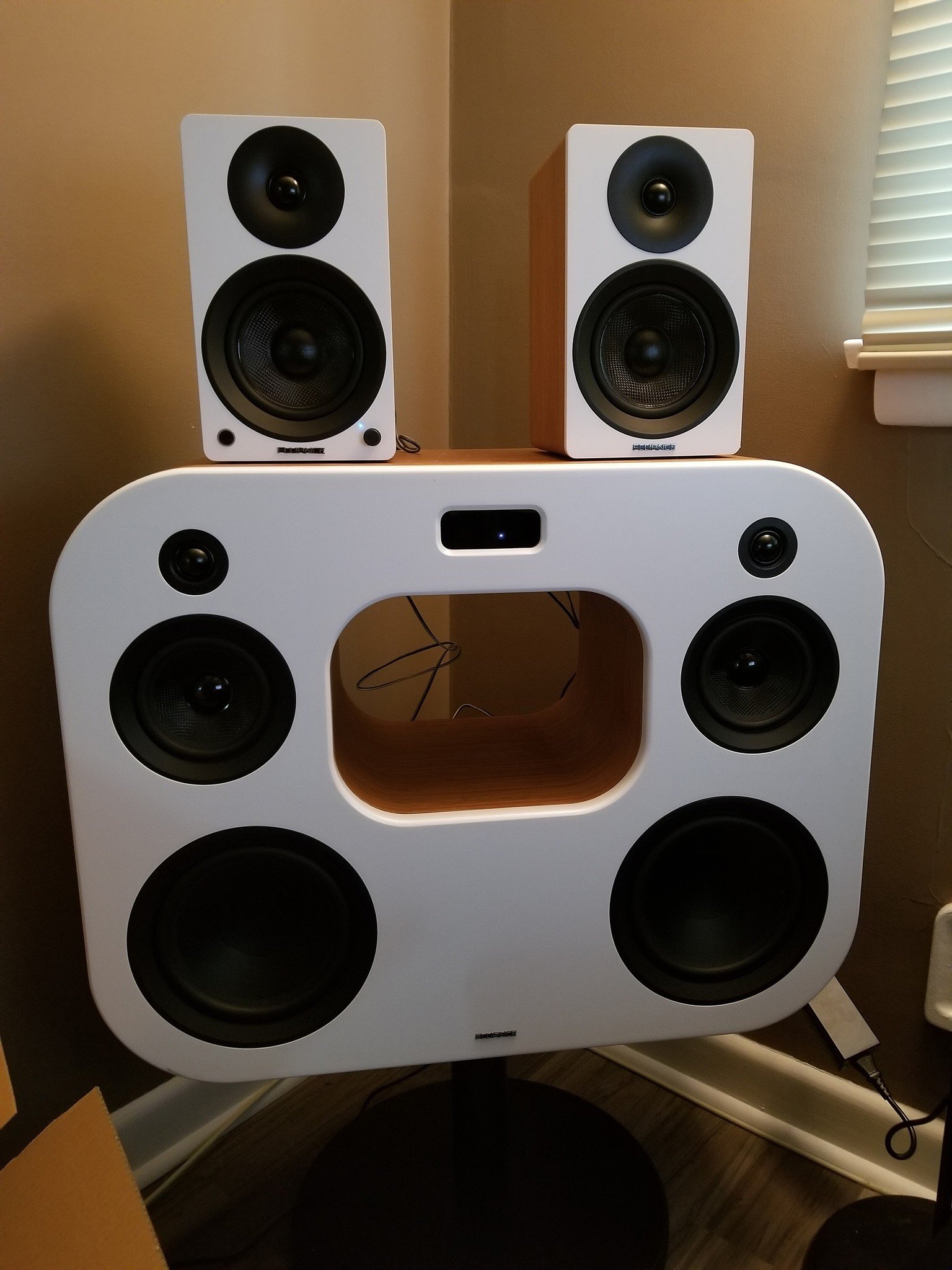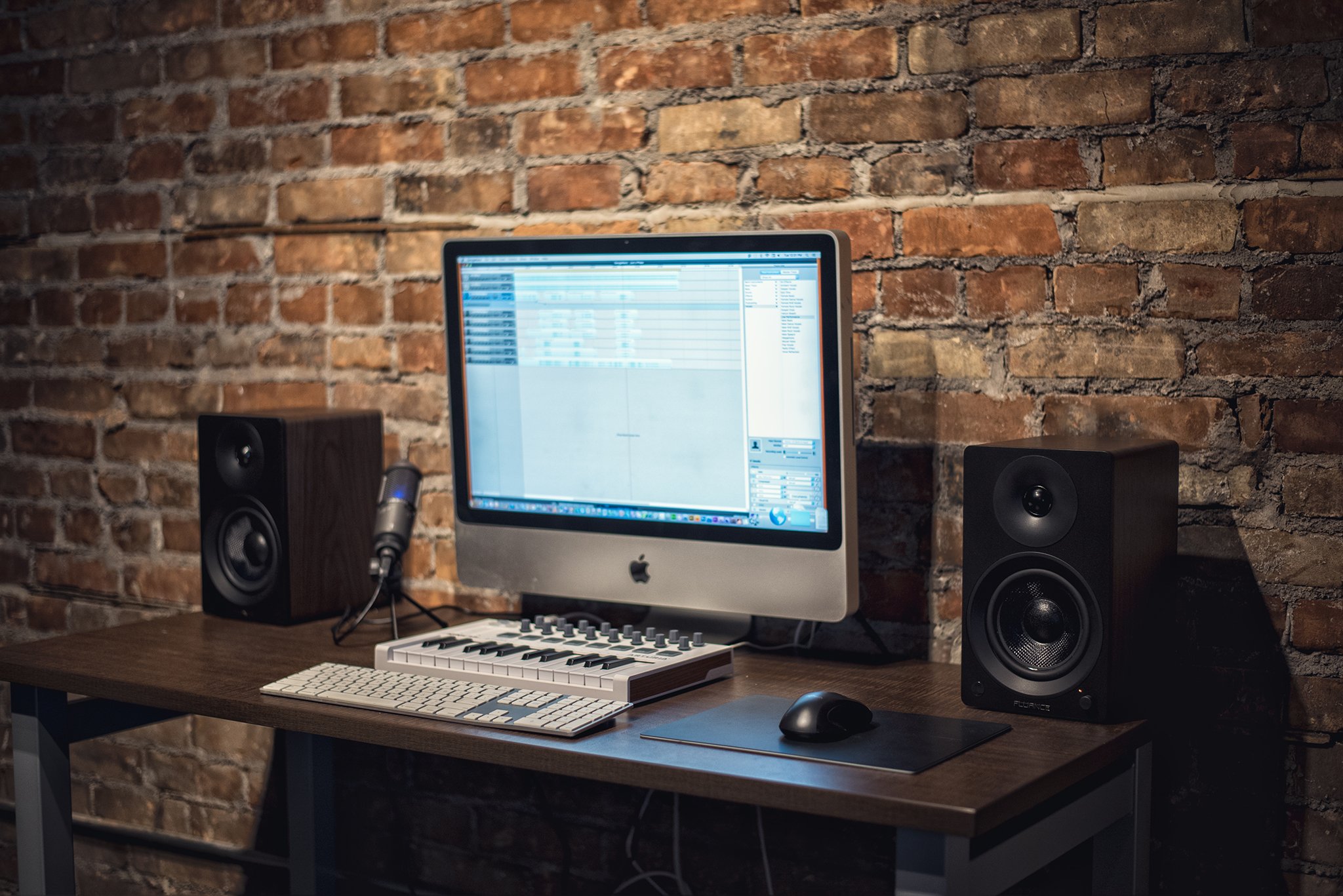
Earlier this year, I reviewed the Fluance Fi70 and was blown away by it's full, rich sound, quirky design, and all-around awesomeness. So when I was offered Fluance's brand new Ai40 bookshelf speakers to review, I jumped at the chance to try and prove that the Fi70 was a fluke.
I was proven wrong in the best way possible.
The gold standard for Bluetooth bookshelf audio: Sound

The real beauty of these speakers isn't that they sound amazing out of the box (which they absolutely do); it's the ability to customize their sound to your liking that really sets these speakers apart for me. With the included remote, you can scale the bass and treble up and down until you find a sound that's perfect to your ears. I know there are other bookshelf speakers that let you tweak highs and lows, but I find that when adjusting these speakers, it's very noticeable. With some other speakers I've tested in the past, like the Edifier R1700BT, adjusting the bass and treble dials doesn't do a whole lot.
I find placement is everything with bookshelf speakers, but I can't actually find a bad spot for the Ai40s.
To say the bass is full is an understatement. In fact, I had to turn down the bass a couple notches for my taste (just like I had to with the Fi70). Once I did though, the sound was nigh-perfect. Extremely well-balanced, and clear at all volumes, I've found these speakers to be quite versatile in terms of placement.
As I write this, I have them sitting behind me, on top of my Fi70, which means they're sitting 4 inches from one another. The sound isn't muddied by how close they are to one another, and they're certainly at the perfect height to create a balanced sound. But I've also tried them out in my living room, a proper distance apart on my DVD shelf, and the audio quality is just as gorgeous, if not even better. The crazy thing is that I can barely tell the difference between the sound from these and the audio from the Fi70 — other than knowing the Fi70 has much more power under the hood. That being said, the total 70W of power is nothing to sneeze at. I find placement is everything with bookshelf speakers, but I can't actually find a bad spot for the Ai40s.
The addition of the aptX Bluetooth codec is gold for anyone who has it baked into their mobile device, and I've found streaming Spotify from my Galaxy S8 to be just as high-quality as any wired connection I've ever heard.
And to think five years ago I was constantly poo-pooing wireless speakers. Egg on my face.
Dude, the aesthetic, dude: Design


Like a beautiful-sounding robot bunny rabbit.
I was lucky enough to be send some Ai40s that match my Fi70 in terms of the faux-wood wrap. They basically look like Fi70 babies, with their stark white fronts, deep black speakers, and relatively subtle Fluance logo at the bottom. The only thing these lack are mesh covers for the speakers. I really love the open front, especially for bookshelf speakers, since it makes a lovely accent in a room, but having two cats, I do tend to worry about random objects getting destroyed. I suppose I'll just have to crank 'em to scare the beasts off.
The master speaker has a handy knob on the front right, which acts as a power switch and volume knob, and an IR receiver on the opposite side. On the back are fairly traditional speaker wire connections, with knobs that unscrew to reveal connectors. Pop the exposed ends of the wires in the holes, screw 'em up tight, and Bob's your uncle.
The remote is simple enough, with volume, skip track, and play/pause buttons, as well as a function button, a button to dim or turn off the tiny LED, and treble and bass adjustment buttons. It's slick and black, adding nicely to the overall aesthetic.
Are they worth $199.99? Emphatically, yes
I say it in every single speaker review I do, whether it's for small Bluetooth speakers or full-on sound systems: You pay for what you get. The fact that you get so much for $200 in the Ai40 bookshelf speakers should make them an insta-buy for anyone looking for quality speakers at an affordable price.
Even if you're not an audiophile, you can surely appreciate superb sound quality, and at roughly the price of many competitors, the Fluance Ai40 rise above their ranks and set a new gold standard for bookshelf speakers.
Mick is a staff writer who's as frugal as they come, so he always does extensive research (much to the exhaustion of his wife) before making a purchase. If it's not worth the price, Mick ain't buying.


